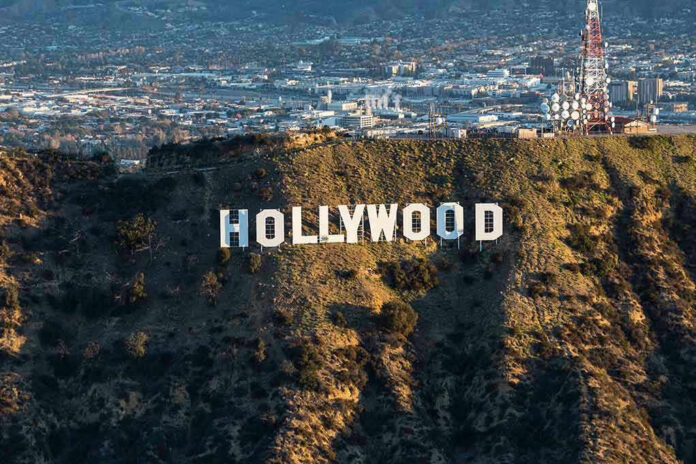Hollywood legend Ridley Scott’s blunt declaration that “most movies are sh*t” has reignited conservative outrage over the cultural and creative decline that’s come to define modern entertainment.
Story Snapshot
- Ridley Scott condemns Hollywood’s creative collapse, calling out industry mediocrity and lack of originality.
- Scott’s critique echoes growing frustration among audiences tired of agenda-driven, formulaic films dominating screens.
- The rise of streaming and profit-driven studios fuels franchise bloat and sidelines authentic storytelling.
- Debate intensifies as Hollywood elites double down on commercialism at the expense of artistic integrity.
Ridley Scott’s Scathing Indictment of Modern Hollywood
On October 5, 2025, acclaimed director Ridley Scott delivered a stinging rebuke of the film industry during an interview at London’s British Film Institute. Scott, whose decades-long career produced classics like “Alien” and “Gladiator,” branded most contemporary movies as “sh*t” and lamented that Hollywood is “drowning in mediocrity.” His remarks struck a nerve in a cultural moment already marked by audience fatigue with recycled plots, woke messaging, and a sense that genuine creativity has been sacrificed for corporate profit and ideological conformity.
Scott’s comments quickly spread across major media platforms. He revealed that, disillusioned by the state of modern filmmaking, he now prefers to revisit his own classics rather than engage with new releases. The timing is potent: as conservatives have warned for years, Hollywood’s creative well has run dry, replaced by virtue signaling and franchise reboots that do little more than push the latest progressive fad. Scott’s candor lays bare what many Americans already believe—Hollywood’s priorities have shifted away from genuine storytelling and toward agendas and bottom lines.
Industry Trends: Franchise Fatigue and Creative Stagnation
Scott’s critique is far from an outlier. The past decade has seen studios double down on sequels, remakes, and intellectual property-driven projects at the expense of original works. The explosion of streaming platforms has only intensified this problem, flooding the market with content that’s high in quantity but low in quality. Industry veterans and audiences alike have expressed growing dissatisfaction with the formulaic, risk-averse approach dominating today’s film landscape. The result is an endless parade of indistinguishable blockbusters, each more forgettable than the last, with little room left for daring artistry or traditional values.
The problem runs deeper than just business decisions. As Hollywood’s gatekeepers chase global box office and the next viral streaming hit, the stories told increasingly reflect a narrow ideological worldview, alienating wide swaths of the American public. The disconnect between Hollywood elites and everyday audiences has never been more apparent—Scott’s blunt words simply gave voice to a frustration that’s been simmering for years.
Who Holds the Power—and Who Pays the Price?
The main players in this creative crisis are well known. Veteran filmmakers like Scott still hold some influence, but real power lies with studio executives and streaming giants who prioritize profit and progressive talking points over artistic merit. Audiences, meanwhile, are left to sift through an ever-growing pile of uninspired releases, searching in vain for something genuine. The economic consequences are real: as franchise fatigue sets in, even major studios face diminishing returns, while new and diverse voices struggle to break through the noise.
At the heart of this debate are questions about the role of art in society, the importance of cultural heritage, and the dangers of allowing a few powerful interests to dictate what stories are told. For conservatives, the erosion of traditional values and family-friendly entertainment is not just disappointing—it’s a warning sign of broader cultural decline.
Debate Intensifies: Is Reform Possible?
Scott’s remarks have sparked a renewed conversation about the future of American cinema. Some critics agree with his assessment, blaming risk-averse studios and the unchecked rise of streaming for the current malaise. Others note the irony that even Scott’s recent films have not escaped criticism for lack of originality, highlighting the complexity of the problem. Regardless, his comments have reignited calls for a return to authentic, principled storytelling—one that honors both creative courage and the values that built Hollywood’s golden age. Whether the industry will listen, or continue its slide into irrelevance, remains to be seen.
In the wake of Scott’s blunt critique, audiences and creators alike face a critical crossroads. Will Hollywood reclaim its purpose as a champion of genuine art and American values, or will the parade of mediocrity march on—fueled by commercialism, ideology, and a disregard for the audience it once served?
Sources:
Director Ridley Scott Says Most Movies Are Sh*t; Hollywood ‘Drowning in Mediocrity’ – ScreenRant
Ridley Scott says most movies are “sh*t”; Hollywood “drowning in mediocrity” – AOL











